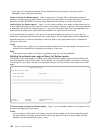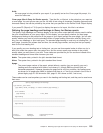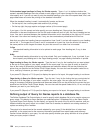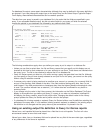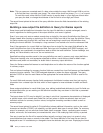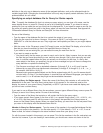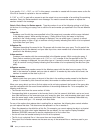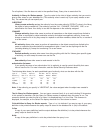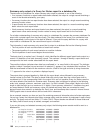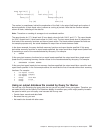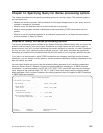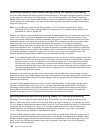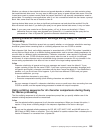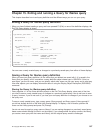Summary-only output of a Query for iSeries report to a database file
The data sent to a database file, when summary-only output is selected, is one of the following:
v If no summary functions or report breaks have been selected, the output is a single record containing a
count of the records selected by your query.
v If summary functions but no report breaks have been selected, the output is a single record containing
summary function values.
v If report breaks but no summary functions have been selected, the output is a record containing report
break values for each report break.
v If both summary functions and report breaks have been selected, the output is a record containing
report break values and summary function values for every report break and for the final totals.
For a better understanding of summary-only output to a database file, compare the summary database file
output with a printed report from the same query. The data produced is the same (if no summaries have
been suppressed), but the layout of the data is different. If you print the query definition for a query with
output sent to a database file, the record format layout is included.
The information in each summary-only record that is output to a database file has the following format:
v The first position of each record contains a break level number.
v The second position of each record contains an overflow indicator.
v The third position of each record begins the actual data.
The break level is a number from 0 through 6, which identifies the different report break levels output to a
record. A 0 identifies a final total (summary) record. The numbers 1 through 6 identify a report break and
correspond to the level number associated with the report break.
The overflow indicator indicates when data has overflowed in 1 or more fields in this record. The indicator
position is blank if overflow has not occurred. An asterisk (*) appears if any calculated field overflows. The
field that overflowed is filled with the maximum value for a field of that type and size (a string of asterisks
***** appears for the value in a printed or displayed report).
The output data is grouped together by field with the report break values followed by any summary
function values for the field. The data for break fields with priority lower than the current break level is
considered null. If the corresponding field in the output file is not null capable, Query for iSeries uses the
null-value defaults (like blanks for character data). Summary data is displayed or printed in the following
order: total, average, minimum, maximum, and count. If a field is totaled, Query adds 3 digits to the field
length to hold the total (up to a maximum of 31 digits). Count summary values are 7 characters long and
are zoned decimal. Break and summary values for packed and binary data are converted to zoned
decimal format when saved in a database file. Date, time, and timestamp data is saved in internal format.
DBCS-graphic data is saved without shift-out and shift-in characters.
As an example, assume you have an input file containing personnel information about all state employees.
You set up a query that requests total salary, average salary, and the number of employees in each county
and city. The query sorts on two fields: CITY within COUNTY. Report breaks are defined for these fields and
the Salary field for each county is totaled, averaged, and counted.
If you ran this query and selected summary-only output, the following seven records would be sent to a
database file:
2 Los Angeles Arcadia 00007000000 03500000 0000002
2 Los Angeles Glendale 00009000000 04500000 0000002
1 Los Angeles ......... 00016000000 04000000 0000004
2 Orange Costa Mesa 00006000000 03000000 0000002
2 Orange Irvine 00008000000 04000000 0000002
1 Orange ......... 00014000000 03500000 0000004
0 ......... ......... 00030000000 03750000 0000008
||||| ||
160 Query for iSeries Use V5R2



